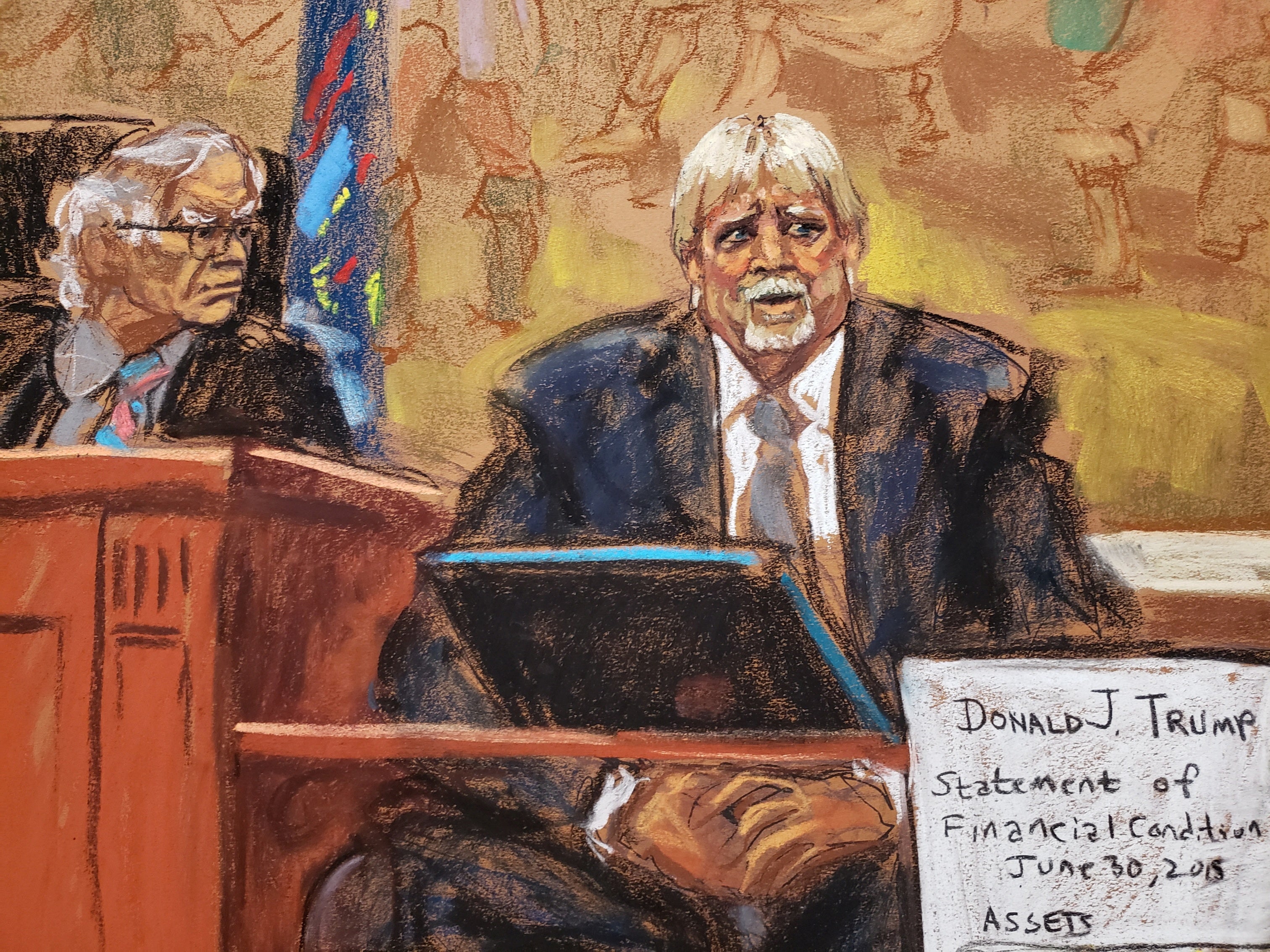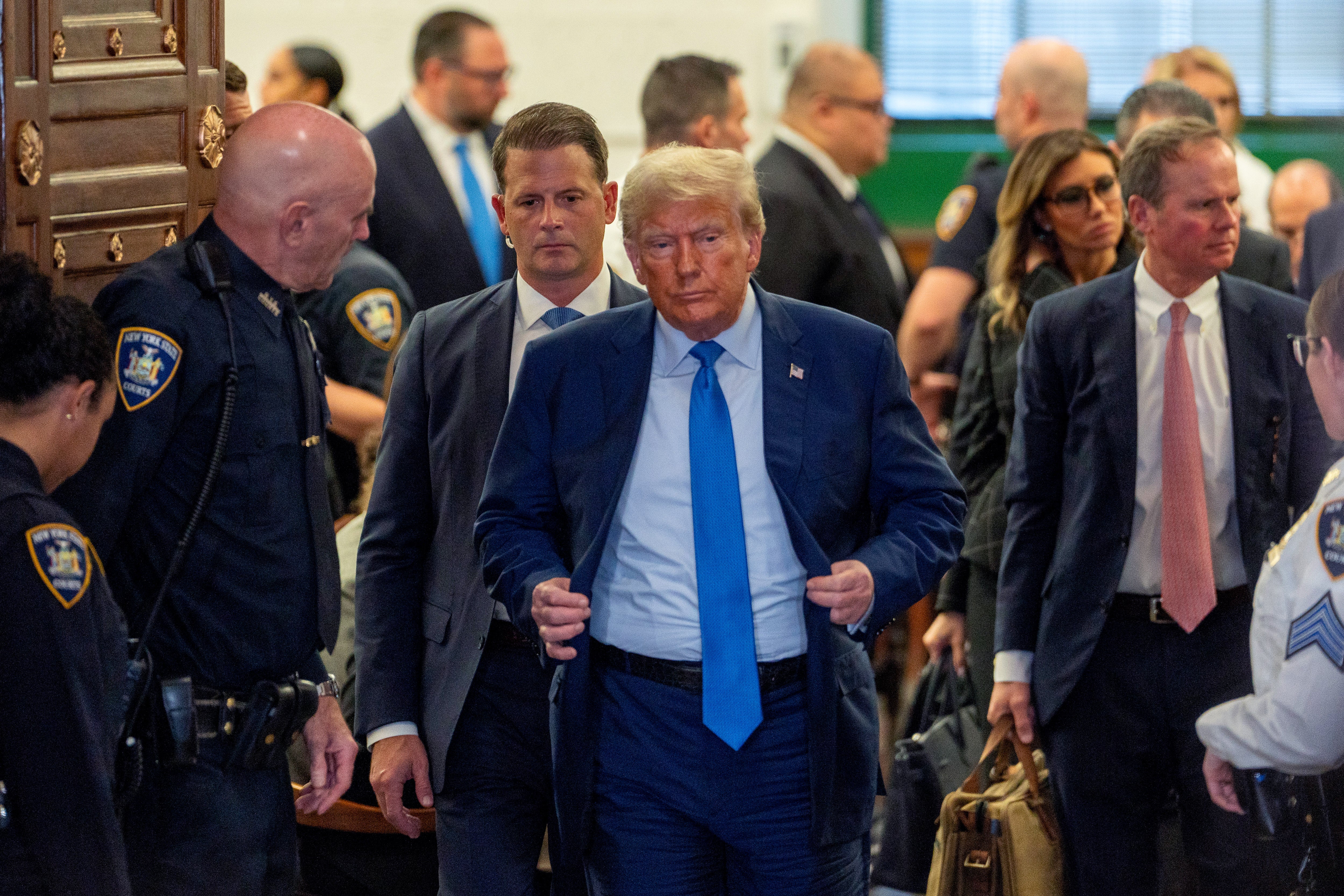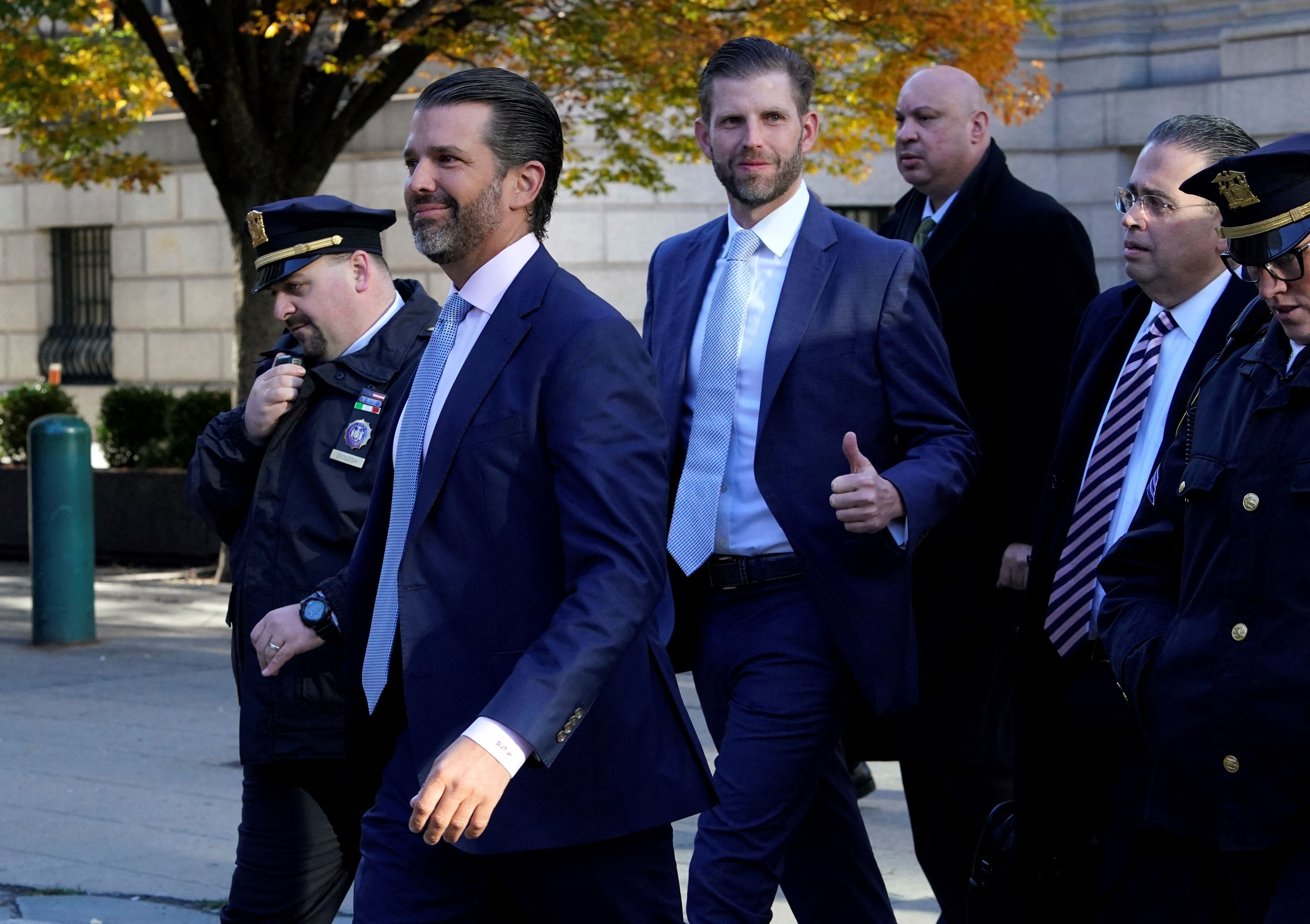Ex-Trump Organization executive breaks down during fraud trial testimony
The defence is taking aim at the accountants, but evidence appears to show Trump had final review of allegedly fraudulent documents at the heart of the case
After spending two days on the witness stand for a second time, Jeffrey McConney had enough.
Through tears, he told a defence attorney for his former boss Donald Trump and his co-defendants that he “gave up” his longtime accounting role with the Trump Organization following a crushing wave of legal threats against it.
“I just wanted to relax and stop being accused of misrepresenting assets for the company that I loved working for,” he testified in a lower Manhattan courtroom on Tuesday. “I’m sorry.”
Mr McConney is among more than a dozen defendants charged in a sprawling fraud lawsuit from New York Attorney General Letitia James, who has accused the former president, his two adult sons and chief associates of grossly inflating his net worth and assets to fraudulently obtain favourable financial terms over a decade in an effort to boost the family’s brand-building properties in its vast real estate empire.
Judge Arthur Engoron already found the defendants liable for fraud. In the eighth week of a trial stemming from the blockbuster lawsuit, attorneys for the former president have narrowed their defence: blame the accountants.
Handwritten notes on Mr Trump’s financial statements at the centre of the case suggest that it was the former president and his chief executives who had the final word. One of Mr Trump’s net worth statements from 2014 explicitly stated “DJT TO GET FINAL REVIEW”.
Mr Trump, whose own meandering testimony repeatedly veered into insults against the judge and the attorney general, even at one point admitted he would sometimes “look” at those statements of financial condition and maybe offer “suggestions”.
The civil trial inside New York State Supreme Court will determine remaining claims in the lawsuit – including insurance fraud, falsifying business records and conspiracy charges – and what penalties, if any, Mr Trump and his co-defendants will face.
Ms James is seeking at least $250m to recover ill-gotten gains, and to effectively block the Trumps from doing business in the state. The judge’s pretrial judgment ordered a receiver to take control of the Trumps’ properties, but an appeals court has frozen that decision, for now.
Defence attorneys are expected to return to court on 27 November and continue their case through 15 December.

Mr McConney, who joined the Trump Organization in 1987 and continued to work for the company until last year, was granted immunity in exchange for his testimony in the unrelated but parallel criminal prosecution of the Trump Organization last year.
The company was fined $1.6m after a New York City jury convicted two of its subsidiaries on 17 charges stemming from what prosecutors described as a years-long scheme to avoid paying payroll taxes by compensating top executives with lavish untaxed perks.
In that case, Mr McConney admitted to breaking the law to help Trump Organization executives in the scheme.
Allen Weisselberg, the former longtime chief financial officer of the Trump Organization, also pleaded guilty to several tax crimes stemming from the criminal investigation into the former president’s business empire. He was sentenced to five months in jail earlier this year.
Mr McConney was among the first witnesses to testify in the fraud trial last month, as lawyers with Ms James’s office questioned him and others about Mr Trump’s statements of financial condition.
Those documents allegedly included inaccurate valuations of Mr Trump’s assets, which were provided to banks, insurers and other parties to obtain favourable terms for loans and other benefits.
Mr McConney said he was responsible for those statements from 2011 to 2017, but he distanced himself from the chief accounting firm hired to draft them.
“We as the Trump Organization didn’t prepare the statement,” he said during his testimony last month.
Mr McConney, however, admitted that Mr Trump himself would seek a final review of the compilation of statements of financial condition before they were submitted.

The former president later testified that he gave Mr McConney and Mr Weisselberg total authority for those statements.
But defence attorneys have repeatedly turned to the longtime accountant for the firm that compiled them: Mazars USA.
In lengthy questioning across nearly three days on the witness stand early in the trial, that accountant, Donald Bender, testified that the Trump Organization provided him with the data used to assemble those financial statements.
Under questioning this week, Mr McConney said Mr Bender “had access to anything he wanted” and “was basically an extension of our accounting department” where “anybody … could talk to anybody.”
“I relied on him for a lot of stuff,” he said.
Donald Trump Jr and Eric Trump testified similarly while denying any of their own involvement in manipulating or having any knowledge of their father’s statements of financial condition.
“He was an outside accountant that we relied heavily on for all of our accounting needs,” Donald Jr said.
When it came to the accountants, “I listen to their expertise,” he said.
“Every decision I made was based on information I got from Mazars,” he said. “They were intimately involved with every aspect … For purposes of accounting, I rely on accountants”
Eric Trump said he “knew virtually nothing” during his testimony.
“This is just not something I ever had anything to do with,” he said.
When he was shown an email he received from Mr McConney in 2013 about “your dad’s annual financial statement,” Eric Trump continued to deny his involvement.
“It’s just not something I got involved in,” he added. “I knew nothing, or next to nothing, about the [statements of financial condition]. I never worked on it. … I was responsible for building properties and pouring concrete. This was just not in my domain.”

Ivanka Trump also denied having anything to do with those statements.
“You showed me a few documents and emails and correspondence which references financial statements broadly but that was not something I was involved in,” she told lawyers for the attorney general.
Their father, when questioned about making sure those statements were compliant with accounting guidelines, said his accountants “had to do something” with them.
“They got paid a lot of money to do this work,” Mr Trump testified. “I told two top people to work with the accounting firm to give them anything they needed.”
When it came to identifying fraud, “everybody” was responsible, he said.
When he returned to Judge Engoron’s courtroom this week for another round of testimony, Mr McConney was presented with a 2014 statement of Mr Trump’s financial condition – which allegedly contained $3.5bn in exaggerations.
“Donald Trump would get final review?” Andrew Amer, a lawyer for the state, asked him.
“That was my understanding, yes,” Mr McConney replied.
Mr Trump had final review for all other statements up until he entered the White House in January 2017, Mr McConney said.
Mr McConney, in emotional remarks from the witness stand on Tuesday, defended the statements and said he never intended to mislead anyone.
“I think everything was justified. Numbers don’t represent fully what these assets are worth,” he said.
“To be hit over the head every time with a negative comment over something is just really frustrating,” he said, “and I gave up.”
Join our commenting forum
Join thought-provoking conversations, follow other Independent readers and see their replies
Comments
Bookmark popover
Removed from bookmarks